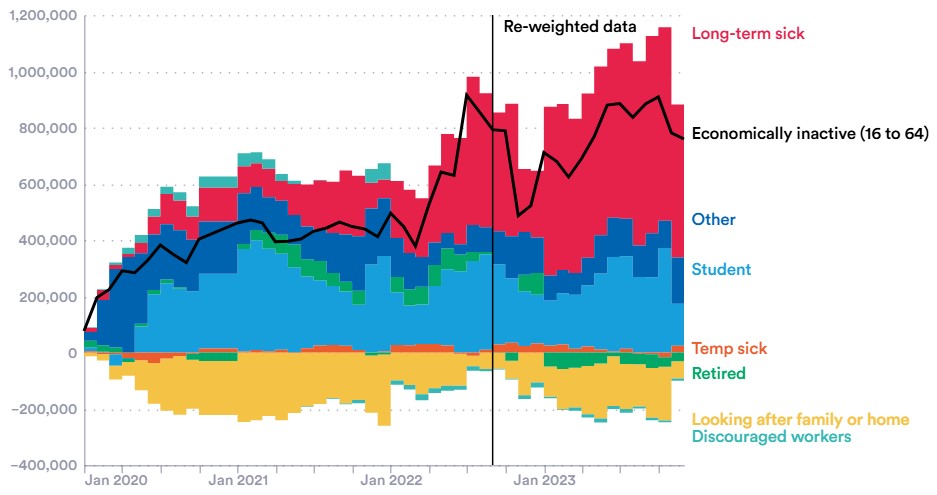-
AuteurBerichten
-
-
 Tips voor het kopen van onroerend goed in het Verenigd Koninkrijk in Londen: door Simon Don I.BijdragerPimlico, London., United Kingdom
Tips voor het kopen van onroerend goed in het Verenigd Koninkrijk in Londen: door Simon Don I.BijdragerPimlico, London., United KingdomUK: Local Authority
Autonomy and
Housing Regulation:
A Critical
Analysis.

Title: Local Authority Autonomy and Housing Regulation: A Critical Analysis of Selective Licensing Reform in England and Northern Ireland.
Abstract:
This article examines the recent reform removing the requirement for local authorities in England and Northern Ireland to seek Secretary of State approval when introducing selective licensing schemes for private rented housing. Situating the change within the broader context of Labour’s devolution agenda, the paper critically explores the implications of this decision on local governance, housing standards, and the role of central oversight. While proponents argue that the reform empowers councils to address localised issues such as anti-social behaviour and low housing demand, critics highlight concerns regarding oversight, enforcement efficacy, and the risk of duplicative bureaucracy. The analysis concludes with recommendations for balancing local autonomy and effective regulation in the private rental sector.
Invoering:
Selective licensing schemes, introduced under Part 3 of the Housing Act 2004, have been a contentious yet essential tool for local authorities seeking to regulate private rental housing in areas suffering from low demand or persistent anti-social behaviour. Previously, councils in England and Northern Ireland were required to secure approval from the Secretary of State if proposed schemes exceeded 20% of their geographical area or impacted more than 20% of privately rented properties. The recent reform announced by Housing Minister Matthew Pennycook marks a pivotal shift by removing this central approval requirement, effective December 2024.This change, framed within Labour’s ‘devolution drive’, reflects a broader effort to redistribute power from central government to local authorities. However, the reform raises significant questions about the balance between local autonomy and central oversight, the effectiveness of licensing schemes, and the potential implications for landlords, renters, and housing market governance.
Context and Rationale for Reform:
The rationale for removing Secretary of State approval aligns with Labour’s constitutional vision of devolving power to local authorities. Historically, delays caused by central approval processes have been a major obstacle to implementing larger selective licensing schemes. Local councils, often best placed to understand specific housing challenges in their areas, have faced significant bureaucratic hurdles that inhibited timely action.The Ministry of Housing, Communities and Local Government (MHCLG) has justified this reform by asserting that councils possess the “knowledge and expertise” to manage their local housing markets. The ministry’s updated guidance stipulates that local authorities must satisfy all statutory requirements under the Housing Act 2004, conduct public consultations lasting at least ten weeks, and involve local mayors in decision-making processes. These conditions ostensibly mitigate concerns about unchecked local authority powers while streamlining the selective licensing process.
Critical Perspectives on the Reform:
Empowering Local Authorities: A Necessary Step?
Proponents of the reform, such as Lucy Tiller of the Renters Reform Coalition, emphasize its potential to empower councils to address housing problems more efficiently. Private renting issues are inherently localised, with significant variation in market conditions, tenant demographics, and landlord practices. Removing the need for central approval gives councils the flexibility to implement targeted solutions that reflect local realities.Selective licensing can serve as a critical regulatory mechanism to raise standards in private rented housing, particularly in areas plagued by poor housing conditions and anti-social behaviour. By streamlining the process, councils gain a stronger toolkit for tackling persistent local challenges and improving tenant welfare.
Concerns about Oversight and Accountability.
However, critics argue that the reform risks diminishing central oversight and may lead to misuse of licensing powers. Chris Norris, Policy Director of the National Residential Landlords Association (NRLA), raises concerns about the lack of safeguards to prevent councils from implementing “unnecessary and costly schemes”. Central approval, while bureaucratic, has historically functioned as a check against excessive or poorly justified licensing schemes.The NRLA highlights data showing that councils without selective licensing schemes have been among the most proactive in issuing improvement notices to landlords. This suggests that licensing, while useful, does not inherently guarantee improved enforcement outcomes. Instead, effective enforcement relies on robust council capacity, resources, and strategic priorities. Critics argue that selective licensing risks becoming a revenue-generating “cash cow” for councils, with limited tangible benefits for housing standards.
Duplication and Bureaucratic Complexity.
A further concern relates to the potential duplication of regulatory efforts. The government’s plans to establish a national database of private landlords appear at odds with efforts to facilitate expanded local licensing schemes. Norris warns that without clear delineation, the two systems risk creating confusion, administrative burdens, and unnecessary costs for landlords and councils alike.Implications for Housing Governance and Standards:
The reform has significant implications for housing governance in England and Northern Ireland. By prioritising local autonomy, the government acknowledges the capacity of councils to identify and address housing challenges. However, this approach assumes that all councils possess the necessary resources, expertise, and political will to implement and enforce effective licensing schemes.Selective licensing schemes have the potential to improve housing standards, particularly in under-regulated rental markets. However, their success depends on rigorous enforcement, comprehensive data collection, and ongoing evaluation. Without central oversight, there is a risk that some councils may introduce licensing schemes without the capacity or intent to enforce them effectively, thereby undermining their credibility.
Policy Recommendations:
To strike a balance between local autonomy and effective regulation, the following recommendations are proposed:- Central Monitoring and Evaluation: While the requirement for Secretary of State approval is removed, MHCLG should retain a monitoring role to assess the performance and impact of selective licensing schemes across jurisdictions.
- Clear National Guidance: The government should provide clear and consistent guidelines to prevent duplication between selective licensing and the proposed national landlord database.
- Resource Allocation: Councils must be adequately resourced to implement and enforce selective licensing schemes. Central funding or grants could support local authorities in developing capacity for effective regulation.
- Data Transparency: Local authorities should publish regular progress reports, detailing licensing scheme outcomes, enforcement activities, and improvements in housing conditions.
Conclusie:
The removal of central approval for selective licensing schemes represents a significant step in Labour’s devolution agenda, empowering local authorities to address housing challenges more efficiently. While the reform has been welcomed by some as a necessary step to raise standards in the private rented sector, critics warn of risks related to oversight, enforcement, and regulatory duplication.Ultimately, the success of this policy will depend on councils’ capacity to implement and enforce licensing schemes effectively, alongside continued central monitoring and support. Striking the right balance between local autonomy and accountability remains essential for ensuring that selective licensing achieves its intended goals: improving housing standards, addressing anti-social behaviour, and protecting renters across England and Northern Ireland.
References:
Housing Act 2004, Part 3.
Ministry of Housing, Communities and Local Government. (2024). Updated Guidance on Selective Licensing.
National Residential Landlords Association. (2023). Policy Commentary.
Renters Reform Coalition. (2023). Public Policy Statements.
-
-
AuteurBerichten
Je moet ingelogd zijn om op dit onderwerp te kunnen reageren.









